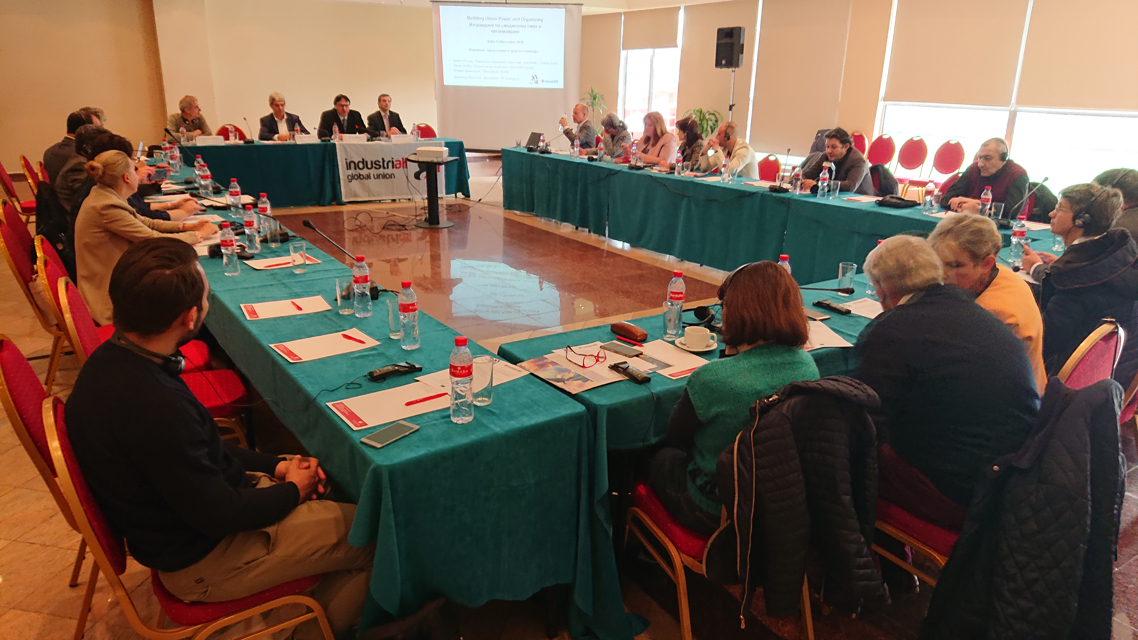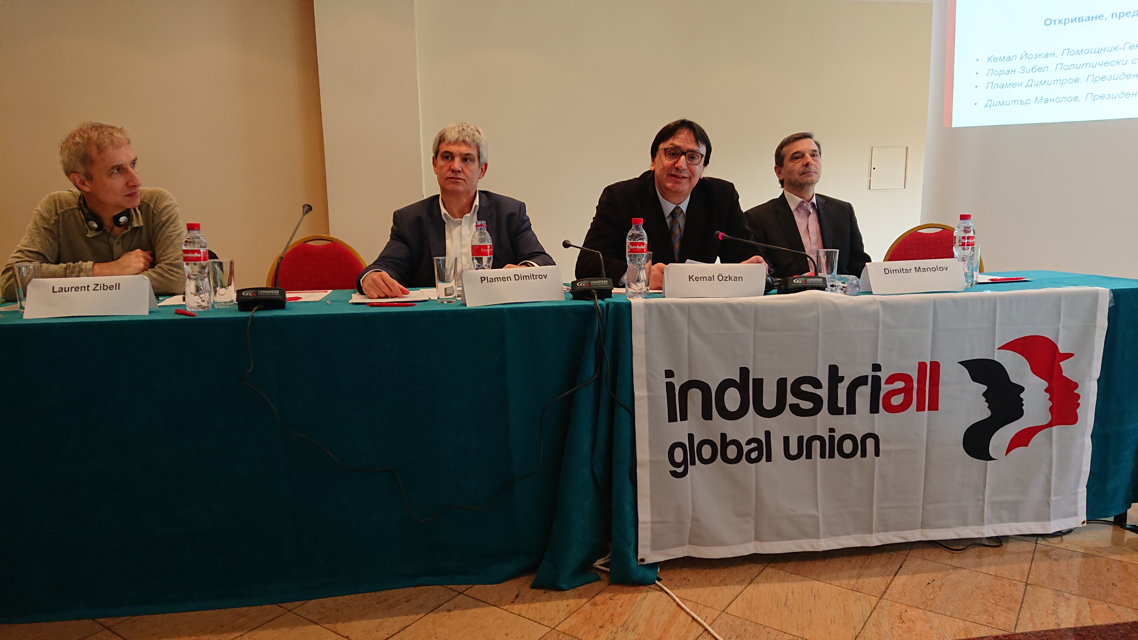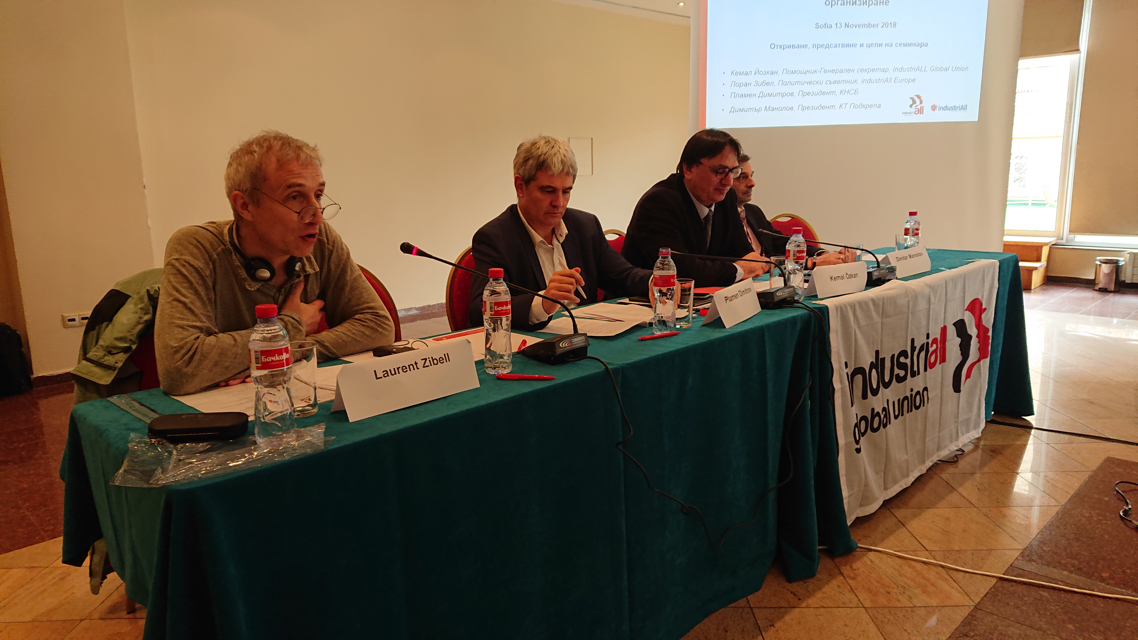“In order to create a better life for Bulgarian workers, to go for wage levels that allow a decent life, and to create a real future for Bulgaria as a country and for Bulgarian citizens and workers, trade unions have to increase membership and building strong and powerful organisations. Both global and European federations are determined to assist the Bulgarian affiliates with that. Because strong trade unions are the best way to a better life”
The meeting also welcomed leaders of the main national centres in Bulgaria, Plamen Dimitrov, President of CITUB and Dimitar Manolov, President of Podkrepa.
The meeting, which was organised as part of developed cooperation between the IndustriALL Global Union and industriAll European Trade Union covered all aspects of organising and building union membership.
Union leaders reported that workers are threatened with reprisals or even dismissal if they join or set up a union, making organising and retaining members very difficult.
In several cases workers have been harassed or penalised because of their union involvement. Affiliates also acknowledged that union structures had to be reviewed and they discussed
their greatest strengths. Some multinational companies, which have global framework agreements (GFAs) with IndustriALL Global Union, have production facilities or suppliers in Bulgaria. From experience, GFAs can open opportunities for organising and developing social dialogue.
Participants lamented that employers had “boycotted” the talks on the minimum wage and social dialogue was not functioning properly. While Bulgarian legislation is quite protective of workers’ rights, in reality enforcement is weak. Fundamental rights at work, based on ILO Conventions that Bulgaria has ratified, are abused with impunity. Furthermore, the lack of a legislative obligation to sign collective agreements sometimes makes the bargaining process ineffective.
Bulgaria has the lowest income per capita in the European Union. If the country is to reduce growing economic and social inequalities, industry-wide collective bargaining must be promoted, and wages increased. Currently bargaining takes place at plant level and workers in small and medium-sized enterprises are, in the overwhelming majority of cases, not covered by any collective agreement.
Poor working conditions and low wages are pushing young people, in particular, to leave the country. The meeting participants highlighted the acute shortage of qualified workers that limits the country’s growth prospects and they called on the government to urgently address the training gaps in key industry sectors, such as engineering.
Participants had a common understanding about the need to prioritise organising and consolidating union structures to make unions more relevant to their members and better able to meet challenges in the world of work. In particular, an effective communication plan must be developed to reach out to potential members and strengthen union presence in the workplace.
IndustriALL Global Union Assistant General Secretary Kemal Özkan stated:
“Both IndustriALL Global Union and industriAll European Trade Union will continue to support the Bulgarian affiliates in developing their capacity and training activities into the future. This is part of our determined cooperation inorganising and building a union power agenda. This is a very timely initiative since there is a burning need for organising in Southeast European countries.”
IndustriAll European Trade Union’s General Secretary Luc Triangle stated:
“In order to create a better life for Bulgarian workers, to go for wage levels that allow a decent life, and to create a real future for Bulgaria as a country and for Bulgarian citizens and workers, trade unions have to increase membership and building strong and powerful organisations. Both global and European federations are determined to assist the Bulgarian affiliates with that. Because strong trade unions are the best way to a better life”


